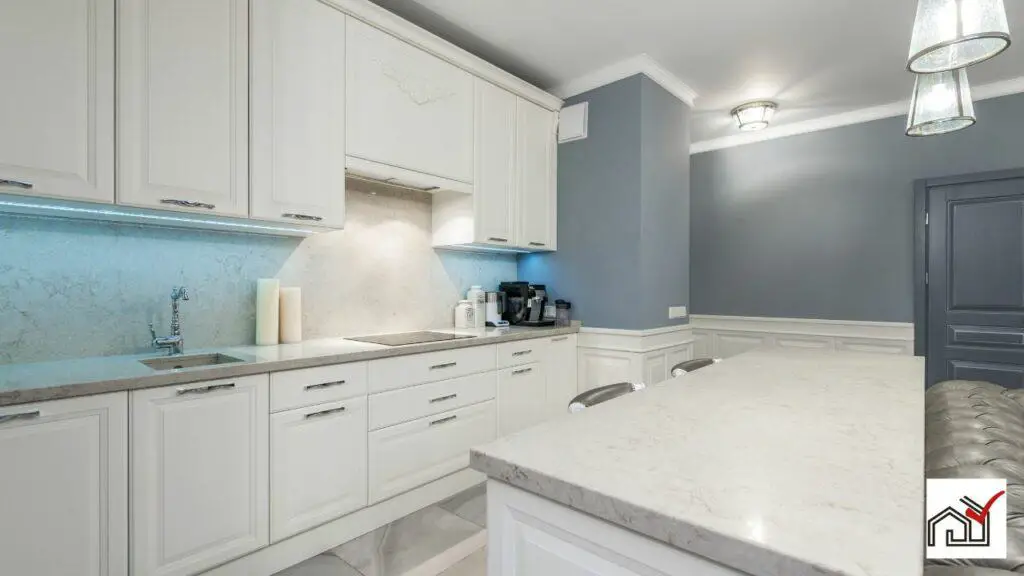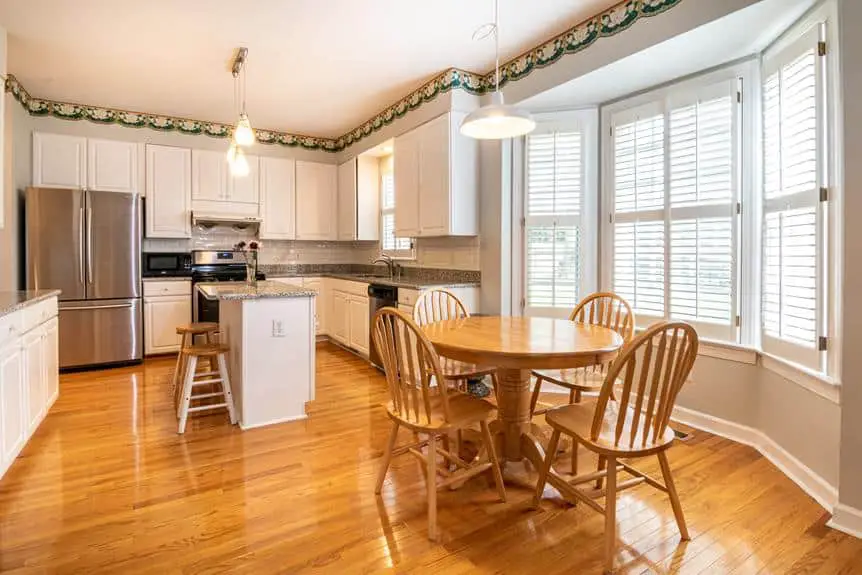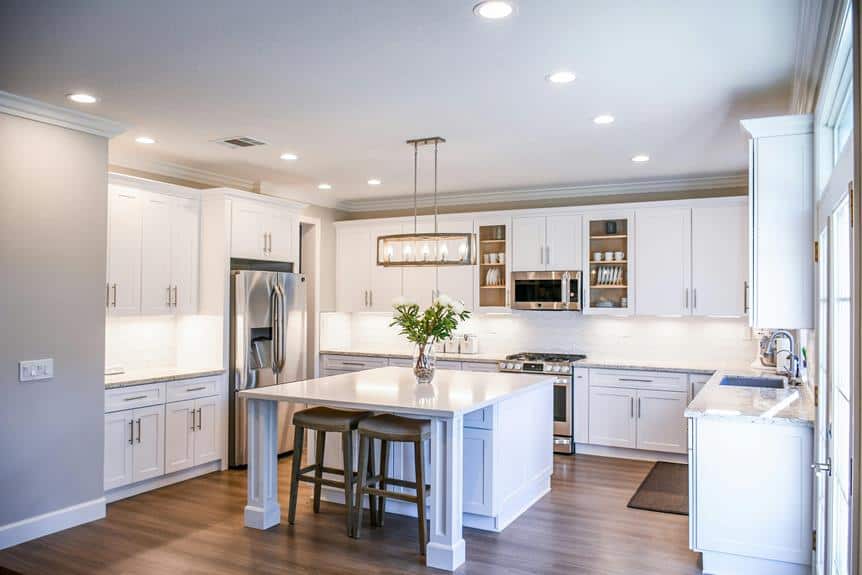Dekton and quartz are popular countertop materials.
Dekton, made from a mix of materials used in glass and porcelain production, is very durable and heat resistant, suitable for both inside and outside use.
Quartz countertops are made from crushed quartz mixed with resin, providing a strong, non-porous surface that's easy to clean.
This comparison looks at their durability, maintenance, design options, and cost to help buyers choose the right countertop for their needs and budget.
Understanding Quartz Countertops
Quartz countertops contain 93% quartz and are known for their strength and wide range of designs. This engineered stone combines the toughness of natural materials with the benefits of human-made improvements. Quartz is non-porous, so it resists stains and water well and doesn't require frequent resealing.
However, quartz is not completely heat resistant and can be damaged by high temperatures. Therefore, it is advised to use cutting boards and trivets to protect its surface. In contrast, Dekton countertops can handle high heat better, allowing hot items to be placed on them without damage.
Quartz is also scratch-resistant, which helps it keep its appearance over time, even with regular kitchen use. But during manufacturing, it needs special tools, such as diamond coring bits and polishing pads, to shape and finish it correctly.
Quartz countertops offer a combination of natural beauty and engineered functionality, suitable for homes and businesses. They come in many colors and patterns, capable of imitating marble or providing unique, modern looks to fit different design preferences.
Exploring Dekton Countertops
Dekton countertops are a composite material known for their strong resistance to heat, scratches, and UV light. They are made from materials used in glass, porcelain, and quartz, and produced through a process called Sinterized Particle Technology. This process replicates how natural stone forms over millennia but does it much faster and at very high temperatures.
The manufacturing technique results in a very dense surface with excellent durability. Dekton is completely non-porous, which prevents water damage and staining, and it can handle very high temperatures without being damaged. This makes it different from many other countertop options.
Dekton comes in more than 40 colors and styles, including patterns that imitate natural stone and others with a more industrial look, suitable for various design preferences. It's also stable in sunlight, making it a good option for outdoor kitchens.
Dekton countertops are expensive, costing between $80 and $160 per square foot. However, their durability and long lifespan can make the investment worthwhile for those seeking a premium, durable countertop.
Comparing Durability and Maintenance
Dekton countertops are known for their strength, with high resistance to scratches and heat. They can withstand high temperatures, allowing hot items to be placed on them without damage. Dekton is also non-porous, making it easy to clean spills with a suitable cleaner.
Quartz countertops are durable but less heat resistant than Dekton. It is important to use a trivet with quartz to avoid heat damage. Quartz is also non-porous and stain-resistant but can scratch, so using a cutting board is advised.
Maintenance for both Dekton and quartz is similar due to their non-porous nature, requiring only a soft cloth and mild detergent for cleaning. Dekton may be more durable in demanding kitchen environments.
Both materials provide durability and easy maintenance, but the best choice will depend on the user's specific needs.
Design Options and Aesthetic Appeal
Dekton and quartz countertops provide numerous design choices.
Dekton comes in over 40 colors and can replicate various natural materials and finishes, including metallic and textured patterns.
Quartz countertops offer a range of patterns and shades, often imitating natural stone like marble with detailed veining and a glossy finish.
Dekton is UV stable, making it suitable for outdoor kitchens exposed to sunlight, while quartz is better known for its natural stone look.
Dekton's manufacturing involves a sintering process that allows it to resemble concrete, stone, or wood. Quartz is made from crushed quartz and resin, enabling a wide variety of colors and designs.
Quartz is usually more affordable, offering a balance of cost and luxury.
Both Dekton and quartz offer options to fit various personal styles and home aesthetics.
Analyzing Cost Differences
Cost differences between Dekton and quartz countertops stem from various elements that affect their prices. Dekton typically costs between $60 to $95 per square foot, including installation, which is similar to or slightly more than quartz. This price reflects Dekton's durability and advanced manufacturing process that incorporates sinterized particle technology, giving it high heat resistance.
Quartz countertop prices fluctuate based on factors like the location of the quarry, transportation costs, brand reputation, and supply-demand. These factors influence the final price for consumers. While quartz has less pronounced heat resistance compared to Dekton, it is a quality material.
Laminate countertops are less expensive but offer lower quality and durability than Dekton or quartz. The cost of materials, fabrication, and installation all contribute to the final cost. Dekton's manufacturing process yields a dense and durable surface, which may result in higher fabrication and installation fees.
Dekton can be more cost-effective than other premium materials like quartzite, marble, and granite. However, its availability might be more limited than quartz, which could influence its price and availability at local suppliers. Buyers should consider these aspects to decide which countertop material provides the best value for their needs and budget.





